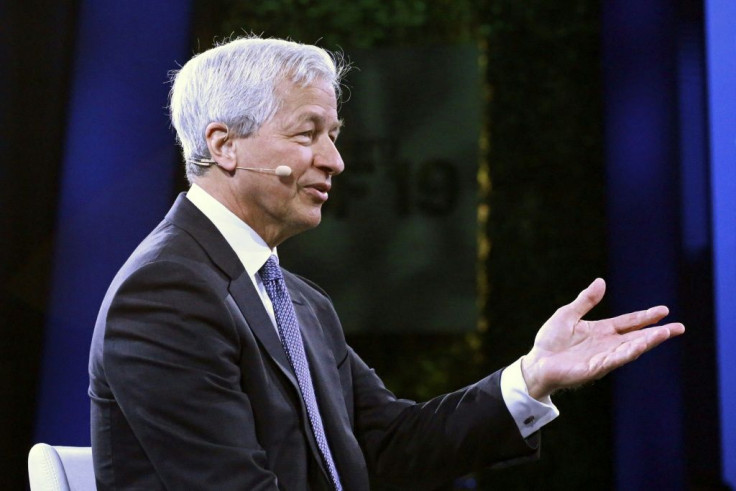US Economy Poised For 'Likely Boom': JPMorgan's Dimon
The US economy is poised for torrid near-term growth following huge stimulus spending, but faces challenges over creaky infrastructure and other woes, JPMorgan Chase Chief Executive Jamie Dimon said Wednesday.
Pointing to huge deficit spending in the United States and the lift from Covid-19 vaccinations, Dimon said he has "little doubt" the "US economy will likely boom," according to a shareholder letter.
"This boom could easily run into 2023," Dimon said in the annual missive, which offers a broad appraisal of the state of affairs in business and national affairs.
"It is possible that we will have a Goldilocks moment -- fast and sustained growth, inflation that moves up gently (but not too much) and interest rates that rise (but not too much)."
But Dimon pointed to two risks that could derail this scenario -- virulent Covid-19 variants that resist vaccines and a more long-running rise in inflation that compels the Federal Reserve to hike interest rates quickly.
Dimon also weighed in on US infrastructure, saying the United States has done a "woefully inadequate" job of upgrading key public works. Dimon broadly endorsed new investments on highways, ports and other realms only days after President Joe Biden unveiled a $2 trillion infrastructure plan.
But Dimon did not explicitly comment on Biden's proposal for financing the venture, which includes a rise in corporate taxes that has drawn opposition from leading business groups. Biden's bill faces uncertain odds in Congress.

Dimon said there are "many efficient ways" to pay for infrastructure, including "public-private partnerships, which have the added benefit of increasing the investment discipline."
On the minimum wage, Dimon said he backed a "living wage," which varies by region but translates to $16.50 an hour on a national level. Congress has also splintered on party lines on a proposal to lift the federal minimum wage to $15 an hour from the current $7.25 an hour.
jmb/dw
© Copyright AFP 2024. All rights reserved.







